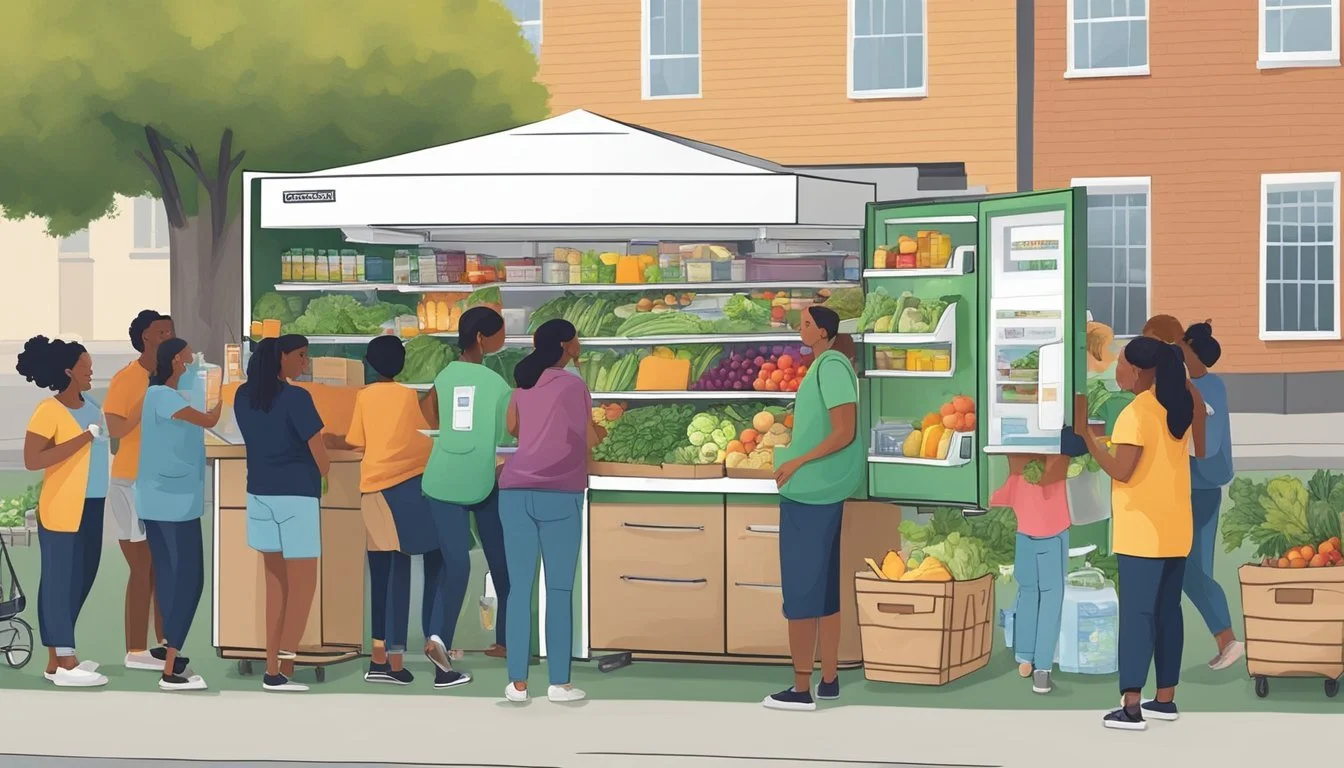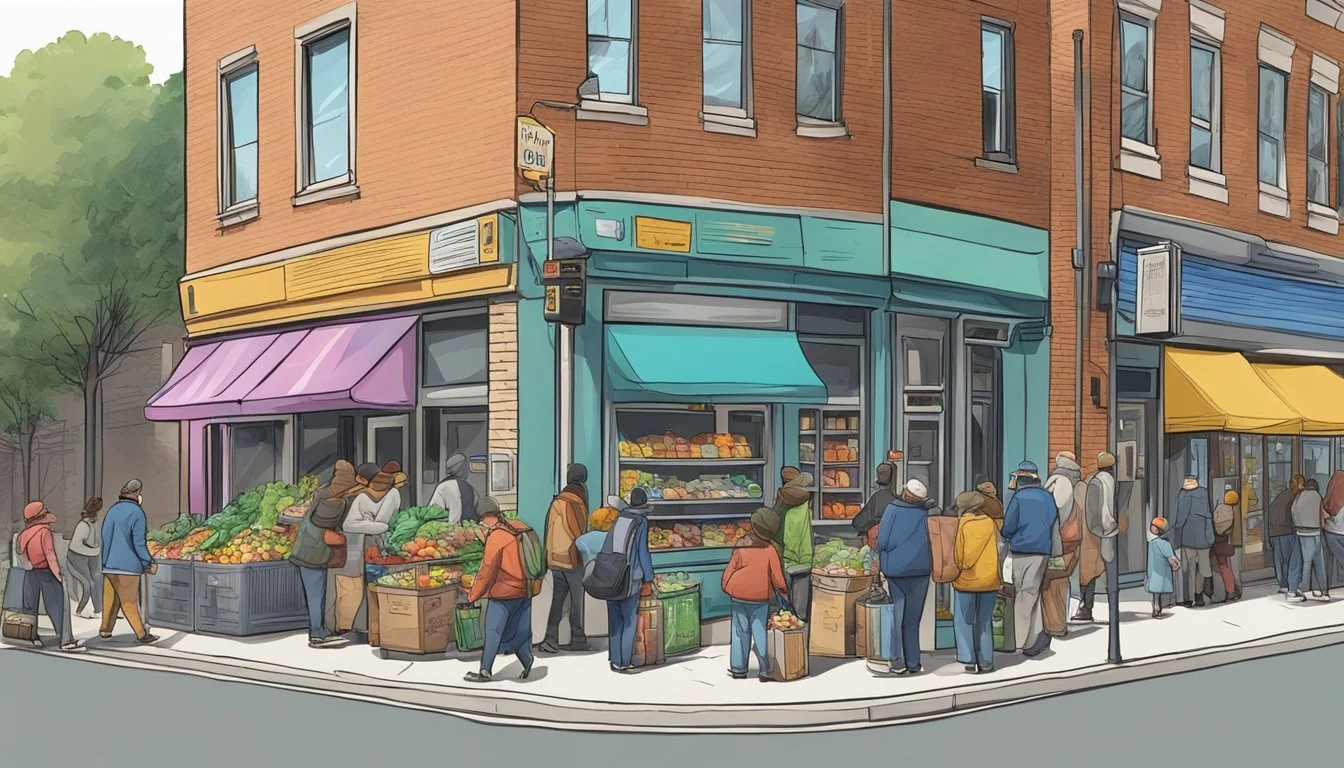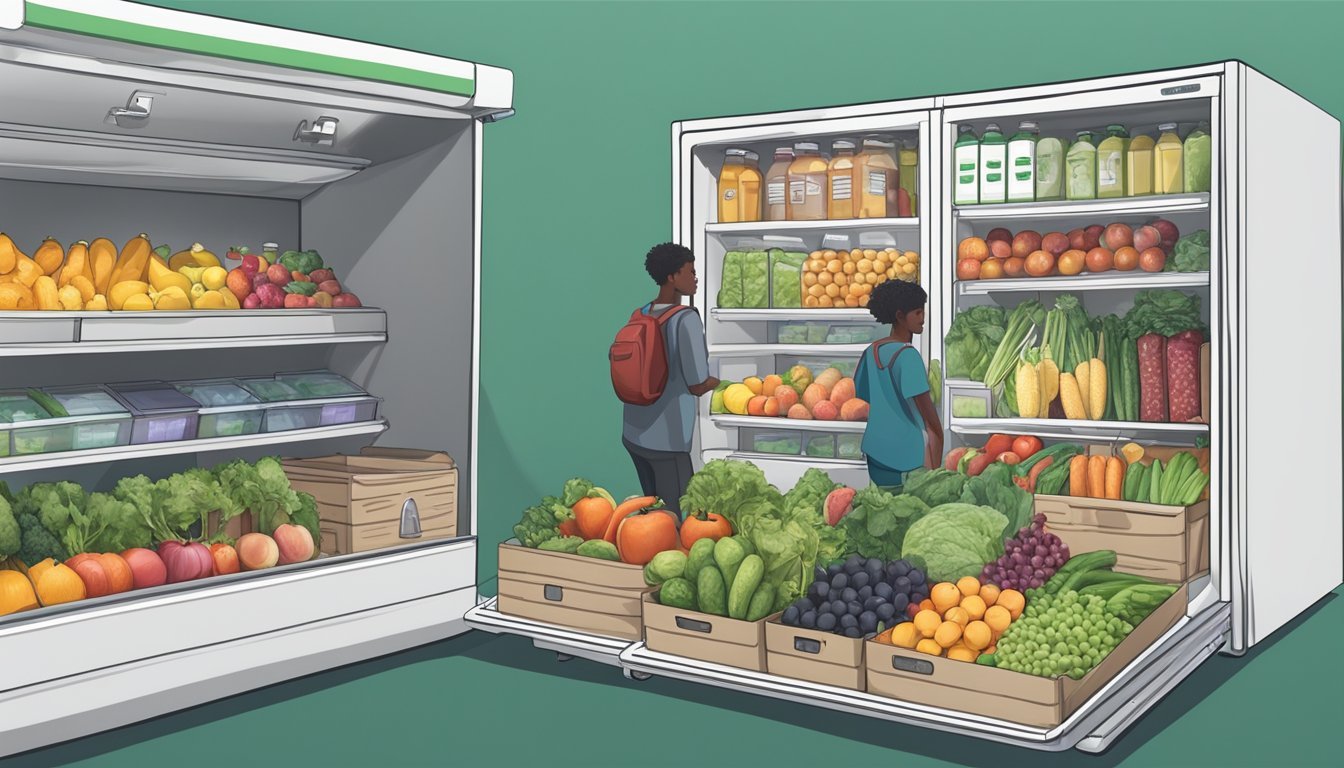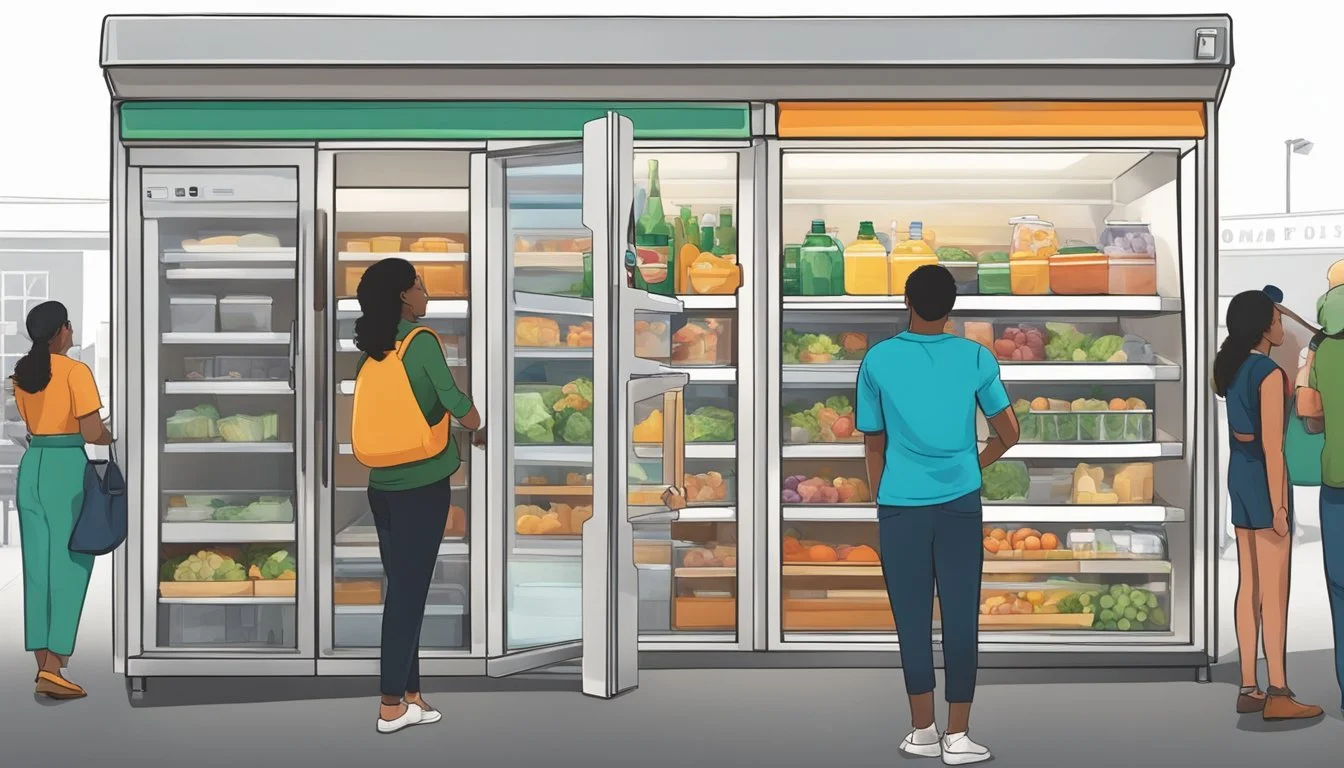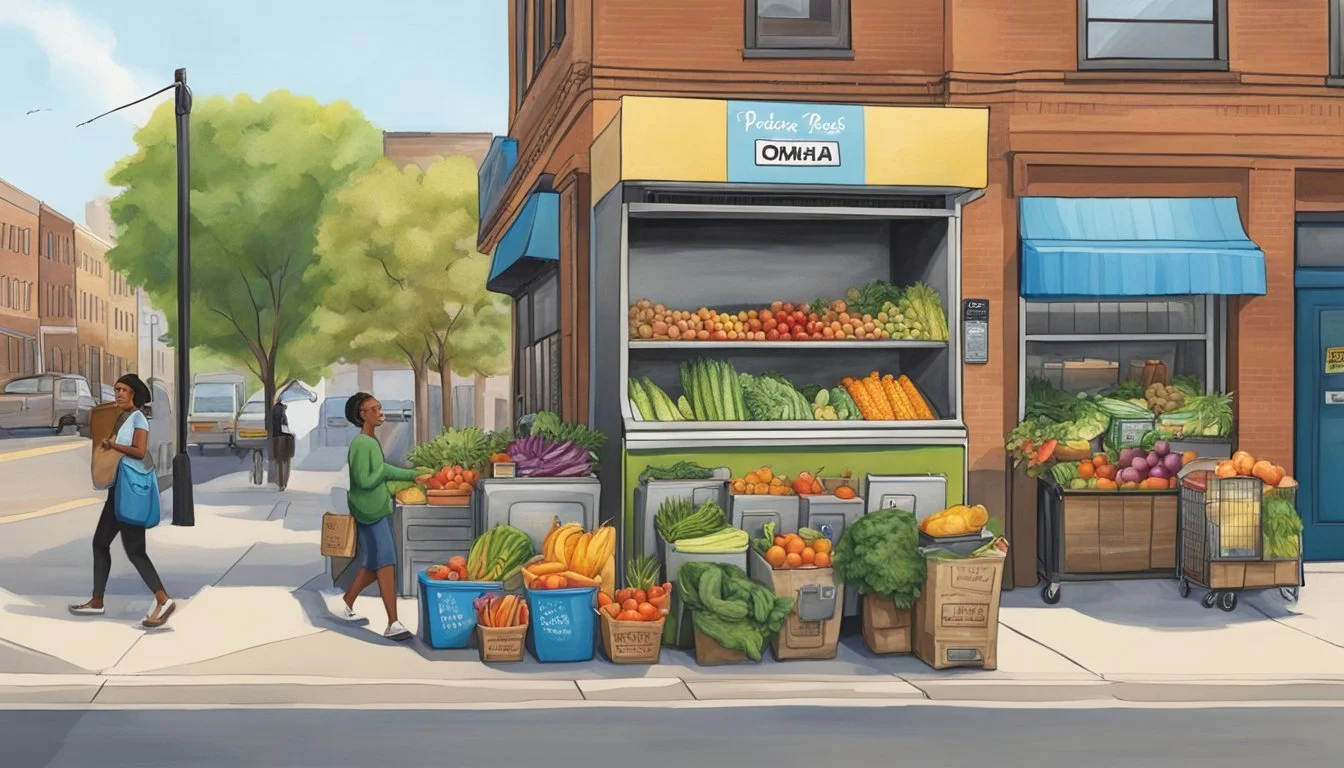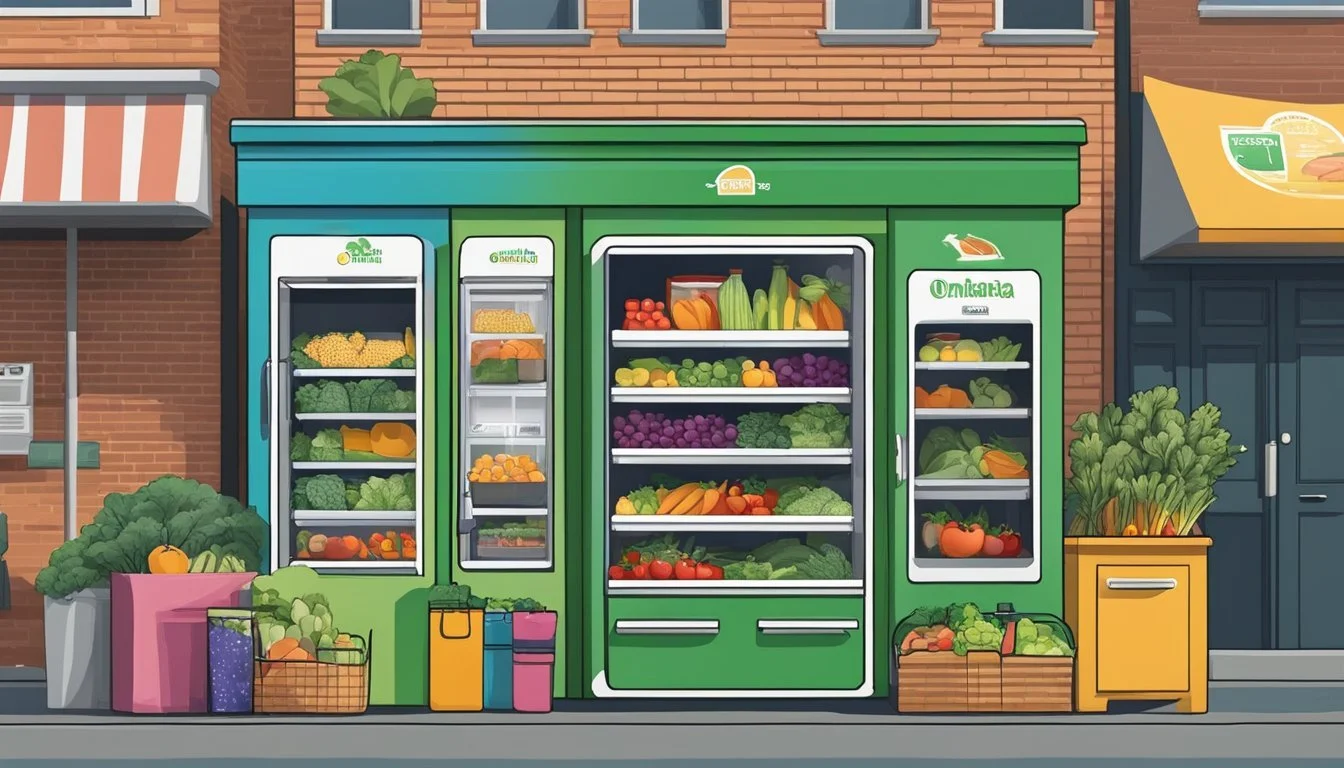Omaha, NE Community Fridge
Nourishing the Local Neighborhood
In Omaha, Nebraska, a city known for its strong sense of community and Midwestern values, the concept of a community fridge has taken root. This initiative, located at City Sprouts—4002 Seward St., Omaha, Nebraska—embodies the spirit of sharing and support, aimed at enhancing community well-being. The Free Fridge and Porch Pantry of City Sprouts is not only a simple repository for food but a symbol of neighborhood camaraderie, providing equitable access to basic necessities such as food, clothing, and hygiene items to those in need.
The emergence of the community fridge in Omaha is a response to a growing recognition of food insecurity issues that affect urban populations across the United States. This grassroots solution allows residents, local businesses, and organizations to contribute perishable and non-perishable items, ensuring that anyone who faces hardship can find help within their own community. It's a testament to Omaha's commitment to fostering a supportive environment for all its residents, one shared meal at a time.
By addressing the immediate needs of its residents, Omaha sets an example for other cities aiming to cultivate a caring and inclusive environment. The implementation of such a direct approach to communal support and sustainability showcases the potential for local initiatives to make a significant impact. The city's drive to maintain this service illustrates its understanding that a strong community is built on the foundation of looking out for each other, particularly the most vulnerable members.
Origin and Purpose of Community Fridges
Community fridges are a grassroots initiative aimed at alleviating hunger and reducing food waste. They operate on the principle of sharing resources within a community.
Concept and Mission
The concept of a community fridge is centered around a simple mission: to provide a space where members of the community can leave or take food freely and anonymously. Originating in Germany and then appearing in Spain, these fridges have quickly spread as a means to serve those facing food insecurity. The underlying idea is food sharing, where the community contributes to the upkeep of the fridge, ensuring it is stocked with fresh and nutritious food.
Community fridges are generally set up in public, accessible places and run by volunteers or local organizations. They empower communities to support one another while also addressing the pervasive issue of food waste.
Community Impact
The impact of community fridges on the neighborhoods they serve is multi-dimensional:
Food Security: These fridges play a critical role in providing food to those who may not have enough to eat.
Waste Reduction: They offer a practical solution to divert good but surplus food from landfills.
Community Engagement: Through collective responsibility, they strengthen local bonds.
They are a reflection of direct, community-driven responses to hunger and food scarcity issues, offering a no-questions-asked service to anyone who might need food assistance. Community fridges rely on the generosity and conscience of the neighborhood, where the culture of take what you need, leave what you don't prevails.
Locations in Omaha
Omaha, Nebraska hosts community fridges, such as Kindness Kitchen Community Fridge Omaha, that are accessible and part of a broader initiative to alleviate hunger and reduce food waste in the city.
Accessibility and Address Information
The Kindness Kitchen Community Fridge Omaha is a notable example positioned to serve the community in the Walnut Hill neighborhood. Locals can locate the fridge and obtain address specifics using platforms like Facebook, where the initiative frequently updates its information, such as location details and operating hours.
Partnerships with Local Businesses
Community fridges in Omaha benefit from collaboration with local businesses to sustain and populate the fridge with food. This model of partnership is integral to maintaining stocked fridges and reflecting a community-centric approach to managing food resources responsibly, while also supporting the dual aim of feeding hungry neighbors and minimizing waste. The specifics of which local businesses are involved aren't detailed in the search results, but typically these are food-related enterprises looking to give back to their community.
How to Contribute
Contributing to the Omaha, NE Community Fridge is an impactful way to provide for those facing food insecurity while also reducing food waste. Individuals and businesses can play an essential role through donations and volunteering.
Donating Food and Supplies
When donating food, ensure that items are fresh and safe for consumption. The community fridge accepts:
Fruits and Vegetables: Fresh, uncut, and preferably unbruised.
Bread and Bakery: Packaged or day-old items that remain edible.
Pantry Items: Unopened, non-perishable staples like rice or pasta.
Dairy Products: Fresh milk, cheese, and yogurt with a good shelf life.
Please avoid donating expired products, open packages, or homemade meals. For non-food contributions, the fridge welcomes clean containers, packaging materials, and cleaning supplies.
Volunteer Opportunities
The service thrives on the assistance of volunteers. Here's how you can help:
Fridge Maintenance: Cleaning and organizing to maintain a welcoming space.
Food Sorting: Checking for spoilage and placing items neatly for ease of access.
Outreach: Spreading the word to potential donors and recipients is recommend for community awareness.
Volunteering schedules are flexible, and tasks can often be coordinated with other community members.
Managing the Fridges
In Omaha, NE, managing community fridges involves continuous attention to functionality and hygiene to ensure they serve their purpose effectively. Proper protocols are put in place to maintain the integrity and efficiency of the appliances while securing food safety for all users.
Maintenance and Upkeep
Regular Inspections: Community fridges in Omaha are inspected regularly to ensure they are functioning correctly. Volunteers or assigned personnel check for any signs of wear or malfunction.
Temperature Checks: Fridges must maintain a consistent temperature to keep food fresh. Daily logs of temperatures are kept for monitoring purposes.
Cleaning Schedule: A strict cleaning schedule is adhered to, with surfaces being wiped down and sanitized to prevent contamination.
Appliance Repair: When a refrigerator requires service, it is handled promptly by professional appliance repair technicians to mitigate downtime and ensure the appliance is fixed safely and correctly.
Food Safety Protocols
Food Handling: Volunteers are trained in proper food handling techniques, including the safe storage and rotation of perishable goods.
Stock Monitoring: They monitor expiration dates and the condition of food to prevent any health risks.
Sanitation: Both the interior and exterior surfaces of the refrigerators are cleaned regularly according to health guidelines, ensuring a hygienic environment for food storage.
Community Fridge Usage Guidelines
The Omaha NE Community Fridge offers food sharing services to combat hunger and reduce food waste. It operates under specific guidelines to maintain health, safety, and efficiency.
Access Rules
Who Can Use the Fridge: The fridge is accessible to all community members. No one needs to demonstrate need or meet any qualifications to take food from the fridge.
Hours of Operation: Community members may access the fridge during designated hours. These hours align with times staff are available to monitor usage, ensuring the safety and cleanliness of the service.
Responsible Usage
Food Donation Guidelines:
Acceptable Items: Fresh produce, packaged goods with labels, and non-perishable foods.
Prohibited Items: Opened containers, expired products, homemade meals, or raw meat.
Health and Safety:
Sanitization: Individuals should sanitize their hands before and after using the fridge. Handles and surfaces must be wiped down with provided sanitizer sprays.
Reporting Issues: Any issues with the fridge, such as malfunction or spoiled foods, should be reported to the responsible service staff as soon as they are noticed.
Supporting the Initiative
The Omaha, NE Community Fridge relies on community support for its operation and success. Active participation from local residents and businesses is crucial in sustaining the service provided by the fridge.
Financial Donations
Financial contributions are pivotal for the Community Fridge to function efficiently. They not only cover the costs of maintenance and utility bills but also fund the purchase of fresh produce and staple foods. Interested donors can contribute in the following ways:
One-time donations: Suitable for those who intend to give on an occasional basis.
Recurring contributions: Recommended for individuals willing to provide steady support.
Donors can visit the organization's official website to make secure online donations. Local businesses are also encouraged to sponsor the initiative as part of their corporate social responsibility efforts.
Spreading Awareness
Spreading awareness is critical for the sustainability of the Community Fridge. Increased visibility can attract more volunteers and donors, thereby expanding its reach and impact. Community members can support awareness efforts through:
Social media promotion: Sharing posts about the fridge and its activities.
Word-of-mouth: Discussing the initiative within personal and professional networks.
Community events and local media can also be leveraged to highlight the services provided by the Community Fridge and to encourage more people to get involved.
Benefits for the Community
In Omaha, NE, the Community Fridge service provides substantial benefits, particularly through reducing food waste and promoting food security among local residents.
Reducing Food Waste
Omaha's Community Fridge actively combats food waste by encouraging the redistribution of surplus food. Instead of discarding excess, consumable food, individuals and businesses can place it in the Community Fridge, where it's available for those in need. This system not only minimizes waste but also maximizes food utilization within the community.
Promoting Food Security
The fridge promotes food security by ensuring that individuals who face food scarcity have access to nutrition. By offering a place where food can be shared freely, the service enhances the availability of essential resources. This initiative not only supports individuals in immediate need but also contributes to the broader goal of community resilience against hunger.
Future Developments
Omaha's Community Fridge initiatives are entering a transformative phase with ambitious expansion and technological enhancement plans. These developments aim to increase food accessibility while leveraging modern refrigeration advancements.
Expansion Plans
The organizers of Omaha’s Community Fridge projects envision a wider network of fridges across the city. The expansion strategy focuses on:
Increased locations: Identifying key areas of need and collaborating with local businesses and non-profits to install additional fridges.
Enhanced support: Bolstering community engagement through volunteer and donor outreach to ensure sustainable operations.
Technology and Innovations in Community Refrigeration
Innovations in refrigeration technology are shaping the future of Omaha's Community Fridges. Key advancements include:
Energy Efficiency: New models of fridges prioritize lower energy consumption, essential for the sustainability of expanded operations.
Smart Integration: Incorporating smart technology allows for real-time monitoring of food stocks and temperature control, ensuring food safety.
Omaha’s focus remains steadfast on providing reliable and safe access to food for all residents, with the integration of efficient appliances and forward-thinking equipment from reputable brands.
FAQs About Community Fridges
Community fridges are a grassroots effort to combat food insecurity by making perishable food accessible to those in need. This section details the steps to initiate a community fridge project and the legalities to consider for smooth operation.
How to Start a Community Fridge
Before one begins, planning is crucial. To launch a community fridge, one would need:
A Partner Organization - Sourcing a local non-profit or community group can provide structural support.
A Suitable Location - Selection should prioritize accessibility for the community.
Food Sources - This involves reaching out to local businesses for surplus food.
Volunteers - They are essential to manage operations, requiring 1-3 days per week.
Time - One must allot significant time to plan, set up, and maintain the community fridge.
Legal Considerations and Compliance
When establishing a community fridge, one must address several legal concerns, including:
Compliance with Health Regulations - Ensuring food safety is paramount. One may need to consult professionals to understand local health codes and obtain necessary permits.
Liability Protection - Seeking legal counsel to draft waivers or understand how to safeguard against potential risks is advisable.
Zoning Laws - One should verify that the fridge's location conforms to zoning regulations which vary by city.
Adherence to these steps and procedures ensures a community fridge operates within legal frameworks and serves its intended purpose efficiently.
Closing Remarks
The Omaha, NE Community Fridge has been a beacon of support in the local community, offering accessible and free food to those in need. However, as with many initiatives driven by the goodwill of the community and the necessity for strict adherence to health, safety codes, and regulations, challenges arise. The City of Omaha's recent directive necessitated the closure of a vital community hub due to significant building code violations, underscoring the importance of maintaining such spaces not only in spirit but in compliance with legal standards for public health.
The Omaha Community Fridge closure serves as a reminder of the delicate balance between community initiatives and regulatory compliance. It highlights the essential nature of ongoing support and diligence in managing community-based projects. As they continue to navigate the complexities of sustaining such operations, the community's resilience and collective effort are critical.
Volunteers and organizers must now consider the path forward:
Collaboration: Working closely with the City of Omaha to address the infractions.
Compliance: Ensuring all safety and health standards are met to reopen the hub.
Sustainability: Implementing long-term strategies for maintenance and operations.
Although facing immediate obstacles, the Omaha Community Fridge exemplifies the community's determination to overcome adversity and continue serving those in need, reflecting the shared commitment to nurturing a supportive and inclusive neighborhood environment.

